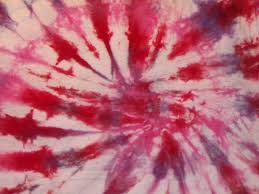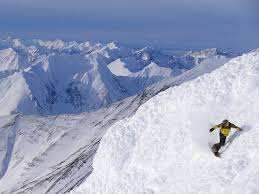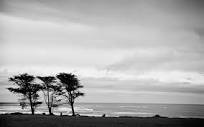Desktop Background Wallpapers Biography
Bolivia is a landlocked country in central South America. It is bordered by Brazil to the north and east, Paraguay and Argentina to the south, Chile to the southwest, and Peru to the west.
Prior to European colonization, the Andean region of Bolivia was a part of the Inca Empire – the largest state in Pre-Columbian America. The Spanish Empire conquered the region in the 16th century. During most of the Spanish colonial period, this territory was called Upper Peru and was under the administration of the Viceroyalty of Peru, which included most of Spain's South American colonies. After declaring independence in 1809, 16 years of war followed before the establishment of the Republic, named for Simón Bolívar, on 6 August 1825. Bolivia has struggled through periods of political instability, dictatorships and economic woes.
Bolivia is a democratic republic that is divided into nine departments. Its geography is varied from the peaks of the Andes in the West, to the Eastern Lowlands, situated within the Amazon Basin. It is a developing country, with a Medium Human Development Index score, and a poverty level of 53%.[12] Its main economic activities include agriculture, forestry, fishing, mining, and manufacturing goods such as textiles, clothing, refined metals, and refined petroleum. Bolivia is very wealthy in minerals, especially tin.
The Bolivian population, estimated at 10 million, is multiethnic, including Amerindians, Mestizos, Europeans, Asians and Africans. The main language spoken is Spanish, although the Guarani, Aymara and Quechua languages are also common and all three, as well as 34 other indigenous languages, are official. The large number of different cultures within Bolivia has contributed greatly to a wide diversity in fields such as art, cuisine, literature, and music.Bolivia was named for Simón Bolívar, a leader in the Spanish American wars of independence. Antonio José de Sucre had been given the option by Bolívar to either keep Upper Peru (present-day Bolivia) under the newly formed Republic of Peru, to unite with the United Provinces of Rio de la Plata, or to formally declare its independence from the Viceroyalty of Peru that had dominated most of the region. Sucre opted to create a new nation and, with local support, named it in honor of Simón Bolívar.
However, the original name given to the newly formed country was Republic of Bolívar. The name would not change to Bolivia until some days later when congressman Manuel Martín Cruz proposed: "If from Romulus comes Rome, then from Bolívar comes Bolivia" (Spanish: Si de Rómulo Roma, de Bolívar Bolivia). The name stuck and was approved by the Republic on 3 October 1825.
In 2009, a new constitution changed the country's name from the "Republic of Bolivia" to the "Plurinational State of Bolivia" in recognition of the multi-ethnic nature of the country and the enhanced position of Bolivia's indigenous peoples under the new constitution.The region that is now known as Bolivia has been occupied for over 2,000 years, when the Aymara arrived in the region. Present-day Aymara associate themselves with an advanced civilization situated at Tiwanaku, in Western Bolivia. The capital city of Tiwanaku dates from as early as 1500 BC when it was a small agriculturally based village.The community grew to urban proportions between AD 600 and AD 800, becoming an important regional power in the southern Andes. According to early estimates, at its maximum extent, the city covered approximately 6.5 square kilometers, and had between 15,000 – 30,000 inhabitants.








Bolivia is a landlocked country in central South America. It is bordered by Brazil to the north and east, Paraguay and Argentina to the south, Chile to the southwest, and Peru to the west.
Prior to European colonization, the Andean region of Bolivia was a part of the Inca Empire – the largest state in Pre-Columbian America. The Spanish Empire conquered the region in the 16th century. During most of the Spanish colonial period, this territory was called Upper Peru and was under the administration of the Viceroyalty of Peru, which included most of Spain's South American colonies. After declaring independence in 1809, 16 years of war followed before the establishment of the Republic, named for Simón Bolívar, on 6 August 1825. Bolivia has struggled through periods of political instability, dictatorships and economic woes.
Bolivia is a democratic republic that is divided into nine departments. Its geography is varied from the peaks of the Andes in the West, to the Eastern Lowlands, situated within the Amazon Basin. It is a developing country, with a Medium Human Development Index score, and a poverty level of 53%.[12] Its main economic activities include agriculture, forestry, fishing, mining, and manufacturing goods such as textiles, clothing, refined metals, and refined petroleum. Bolivia is very wealthy in minerals, especially tin.
The Bolivian population, estimated at 10 million, is multiethnic, including Amerindians, Mestizos, Europeans, Asians and Africans. The main language spoken is Spanish, although the Guarani, Aymara and Quechua languages are also common and all three, as well as 34 other indigenous languages, are official. The large number of different cultures within Bolivia has contributed greatly to a wide diversity in fields such as art, cuisine, literature, and music.Bolivia was named for Simón Bolívar, a leader in the Spanish American wars of independence. Antonio José de Sucre had been given the option by Bolívar to either keep Upper Peru (present-day Bolivia) under the newly formed Republic of Peru, to unite with the United Provinces of Rio de la Plata, or to formally declare its independence from the Viceroyalty of Peru that had dominated most of the region. Sucre opted to create a new nation and, with local support, named it in honor of Simón Bolívar.
However, the original name given to the newly formed country was Republic of Bolívar. The name would not change to Bolivia until some days later when congressman Manuel Martín Cruz proposed: "If from Romulus comes Rome, then from Bolívar comes Bolivia" (Spanish: Si de Rómulo Roma, de Bolívar Bolivia). The name stuck and was approved by the Republic on 3 October 1825.
In 2009, a new constitution changed the country's name from the "Republic of Bolivia" to the "Plurinational State of Bolivia" in recognition of the multi-ethnic nature of the country and the enhanced position of Bolivia's indigenous peoples under the new constitution.The region that is now known as Bolivia has been occupied for over 2,000 years, when the Aymara arrived in the region. Present-day Aymara associate themselves with an advanced civilization situated at Tiwanaku, in Western Bolivia. The capital city of Tiwanaku dates from as early as 1500 BC when it was a small agriculturally based village.The community grew to urban proportions between AD 600 and AD 800, becoming an important regional power in the southern Andes. According to early estimates, at its maximum extent, the city covered approximately 6.5 square kilometers, and had between 15,000 – 30,000 inhabitants.
Desktop Background Wallpapers
Desktop Background Wallpapers
Desktop Background Wallpapers
Desktop Background Wallpapers
Desktop Background Wallpapers
Desktop Background Wallpapers
Desktop Background Wallpapers
Desktop Background Wallpapers
Desktop Background Wallpapers
Debian - Matrix As Desktop Background Wallpaper
Ubuntu - Animate Desktop Background
No comments:
Post a Comment